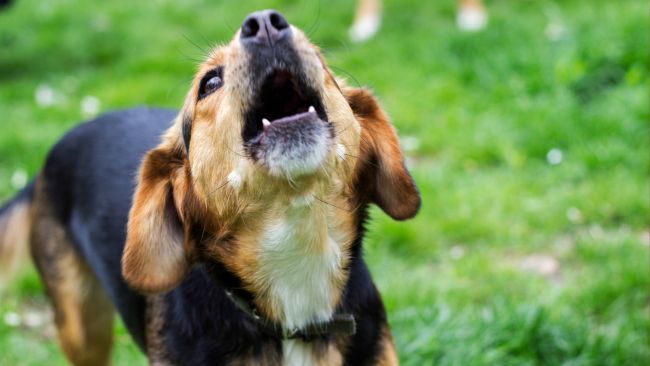Cool and moist noses are the norm for dogs, but runny noses are something that dog owners should pay attention to.
There are several causes of runny noses among canines. Some do not pose a serious threat to the dog; others can be an indication of a serious illness.
The color of the discharge is an important factor in determining whether the runny nose is normal or the sign of a medical problem.
A runny nose that secretes a clear discharge may simply mean that Fido sniffed a bug or a seed up his nose while he had his smeller close to the ground in search of the source of a tantalizing smell. If this is the case, it is important that you monitor the dog to ensure that the cause of the irritation goes away quickly. In many instances, the dog will manage to sneeze out the foreign object and the problem will take care of itself.
Sinus infections, which occur when the lining of the sinuses become inflamed, are a common cause of runny noses in dogs. Symptoms can include sneezing and coughing in addition to the runny nose. In some cases, sinus infections can actually cause the nose to bleed. In many cases, a sinus infection is reason for a trip to the vet’s office because antibiotics are often needed to cure the problem.
Mites in a dog’s nasal passage can cause an infection that will show itself in the form of sneezing, nose bleeds and a bad nasal discharge. Mites are transmitted from one dog to another through nose-to-nose contact with other dogs. This problem will require medication from your dog’s veterinarian.
Just as we humans suffer from the common cold, dogs frequently experience upper respiratory infections that are accompanied by sneezing, coughing and a nasal discharge. It is important to have a dog that is experiencing any kind of respiratory problem checked by the vet because the symptoms could be an indication of more serious problems such as kennel cough or canine influenza.
Dogs exhibiting symptoms of upper respiratory infections should be seen as soon as possible by a veterinarian.
A chronic nasal discharge can be an indication of nasal polyps or tumors that will have to be surgically removed. Early diagnosis and treatment are paramount to your dog’s wellbeing.
Nasal discharges are not uncommon in puppies inflicted with a cleft palate, a condition that leaves an opening between the mouth and the nasal cavity. Seek out veterinary help if this is the case because surgery may be needed.
Older dogs can experience a similar problem. Lost teeth or tooth decay can cause channels between the nasal passages and the dog’s mouth. It will most likely take surgery to fix the problem.
Whenever you see a nasal discharge – especially one that is not clear in color – consult your dog’s veterinarian. Early detection of medical conditions can save you money and save your dog a lot of discomfort.




.jpg)
0 Komentar